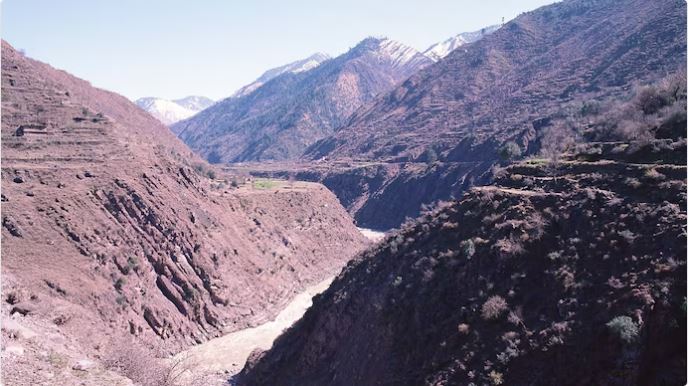New Delhi: Following the escalation of tensions between the two neighboring countries after the Pahalgam terror attack that resulted in the deaths of 26 Indian tourists, Pakistan accused India of abruptly releasing water into the Jhelum River without prior notification to Pakistani officials on Saturday.
A report from Dunya News indicated that a sudden increase in the river’s water levels was observed near Muzaffarabad in Pakistan-administered Kashmir, attributing the cause to India. In response, the local administration declared a water emergency in Hattian Bala, located approximately 40 km from Muzaffarabad along the Jhelum River, and residents were alerted through mosque announcements.
This communication reportedly caused panic among those living near the riverbanks. The water surge originated from Kashmir’s Anantnag region and flowed through the Chakothi area of Pakistan-administered Kashmir, according to the report. Pakistani officials condemned the incident, labeling it a “complete violation of international regulations and water treaties.”
These accusations followed India’s decision to suspend the 1960 Indus Waters Treaty as a reaction to the deadly terror attack in Pahalgam, which was executed by terrorists based in Pakistan. The Indian government stated that the treaty would remain suspended until Pakistan
WHAT IS INDUS WATERS TREATY?
Facilitated by the World Bank and established in 1960, the Indus Waters Treaty is often recognized as a unique example of ongoing collaboration between India and Pakistan. The agreement allocated exclusive rights to India over the eastern rivers—Ravi, Beas, and Sutlej—while Pakistan received rights to the western rivers—Indus, Jhelum, and Chenab—even though these rivers originate in Indian-administered Jammu and Kashmir.
Despite surviving conflicts and diplomatic tensions, the recent incident in Pahalgam, which resulted in the deaths of both security personnel and civilians, seems to have altered the dynamics of this relationship.
HOW WILL IT IMPACT PAKISTAN?
The decision is set to have significant implications for Pakistan, which relies heavily on the Indus River system for its agricultural sector, a crucial part of its economy. Approximately 90% of the country’s irrigation is sourced from the Indus basin.
Any interruption, or even the mere anticipation of such an interruption, in the water supply from the western rivers could worsen water shortages, diminish crop production, and incite domestic turmoil, particularly in the already water-scarce provinces of Punjab and Sindh. Furthermore, one of India’s primary responsibilities under the treaty has been to provide timely hydrological data to Pakistan.
This encompasses advance flood alerts, river discharge information, and updates on glacier melt trends, all essential for effective water resource management. With these measures currently suspended, Pakistan is at risk of experiencing drought or flooding due to a lack of information regarding the water levels of the Indus River and its tributaries.




